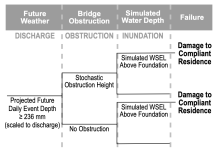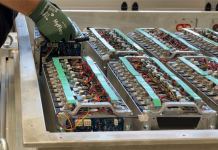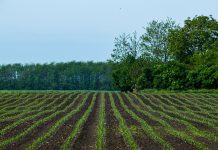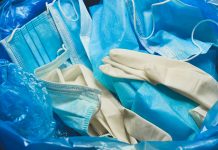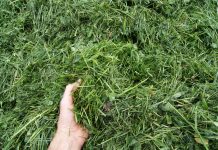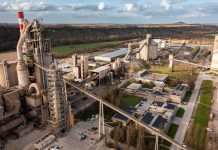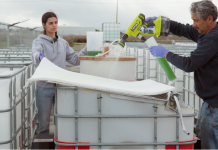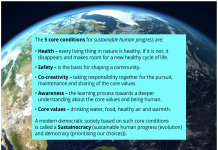Open Access Government produces compelling and informative news, publications, eBooks, and academic research articles for the public and private sector looking at health, diseases & conditions, workplace, research & innovation, digital transformation, government policy, environment, agriculture, energy, transport and more.
Home 2025
Archives
Electrochemical interfaces: Crucial enablers of sustainable energy technologies
In this article, a team of expert scientists explains why electrochemical interfaces are crucial enablers of sustainable energy technologies.
Probabilistic risk assessment (PRA) for sustainable water resources
Dynamic PRA provides sustainable flood risk decision support by identifying costs to present and future generations.
Cerberus: The digital lord of the flies
Professor Francisco Rovira-Más from the Universitat Politecnica de Valencia discusses the Cerberus project, focusing on sustainable crop protection through data-driven decision-making in Mediterranean agriculture.
Canada’s critical minerals research in building its future economy
Mostafa Fayek, Distinguished Professor at the University of Manitoba, discusses the significance of critical minerals (CMs) in modern technology and national security, highlighting their essential role in Canada’s economy and energy transition.
Innovation and sustainability in the geosciences
John Marshall, the Director at Skrinkle Reservoir Geology, examines innovation and sustainability in the field of geosciences.
Shaping the future of circular and sustainable urban mobility
Advancing circular and sustainable urban mobility and logistics are essential for the future of Europe’s green transition and achieving the European Union’s (EU) climate neutrality goal by 2050, as highlighted here by Irene Jubany from the Eurecat Technology Centre.
CROPS4LIFE Project: Towards the decarbonisation of the agri-food system in Vitoria-Gasteiz
The CROPS4LIFE project aims to decarbonise the agri-food system, enhancing the city’s sustainability efforts. Currently, only 1.5% of fresh food consumed locally is sourced from the region. The project promotes a transition to a local, agroecological food system, focusing on short supply chains and generational renewal in farming.
Nanobubble transformation of water treatment
Professor Niall English discusses the challenges and advancements in water treatment, highlighting AquaB Nanobubble Innovations’ breakthrough nanobubble-generation technology, which offers a more sustainable solution for water treatment across various sectors.
Addressing the environmental impact of healthcare is a vital step to combat the climate...
Daniel G. Rainham and Sean D. Christie from Dalhousie University and Nova Scotia Health discuss the key areas where efforts should be directed to reduce the environmental impact of healthcare.
Unlocking sustainable proteins: Clover grass and lucerne as a future food source
The world faces a dual challenge: reducing the environmental impact of food production while ensuring a sustainable supply of high-quality proteins. New membrane filtration method enables us to produce food-grade proteins free of green color, grassy taste and odor.
Energy harvesting IOT sensors: The key to green technology for sustainable transition
The Sensor Systems unit at RISE (Research Institutes of Sweden AB) develops advanced technologies that enable energy harvesting from the surrounding environment. Cristina Rusu, Henrik Staaf share some good news from the field!
Carbon-neutral lifestyle changes and their impact on future health in cities
Dr Peter Hoffmann and Deniz Sirin at Climate Service Center Germany explore carbon-neutral lifestyle changes and their impact on future health in cities.
Sustainable strategic management: Toward flourishing circularity
Discover how Sustainable Strategic Management (SSM) enables flourishing circularity through enterprise-level transformation.
Sustainable textile production: Policies and certifications transforming the global landscape
Victor Durand, the Head of Operations at Ever Dye, discusses how the company meets the new standards for sustainable textile production.
Redefining industrial sustainability
Committed to providing decarbonisation solutions for the global cement and lime industries, Leilac’s CEO, Daniel Rennie, discusses the principles for an environmentally and economically sustainable industrial transformation.
Carbon capture surface: CO2 removal technology
Beth McDaniel, JD, Partner President from Reactive Surfaces Ltd. LLP, introduces us to Carbon Capture Surfaces, a CO2 removal technology that checks all the boxes.
Supply chain waste in the pharma industry
The pharmaceutical industry faces significant challenges with supply chain waste, affecting both environmental sustainability and economic efficiency. Jim McGuire and Deborah McElhone from CPI navigate the complex issue here.
Revolutionizing business with sustainable strategic management
Discover how Sustainable Strategic Management empowers businesses to lead humanity’s transformation before Earth regulates our species into extinction
In an era of unprecedented global challenges,...
Our sustainable human development as a co-operative society
Jean-Paul Close is the Founder of STIR Foundation, which stands for Sustainocracy, Transformation, Indexation, and Research. Here, he shares how this organization works to develop local holistic solutions to global problems using a sustainocratic ideology.
Sustainability transformations in marine governance in Sweden via social learning
Dr. Angelo Jonas Imperiale and Dr. Uta Wehn describe the MISTRA C2B2 programme’s unique approach to promoting sustainability transformations in Sweden’s marine governance through social learning in Living Labs.


